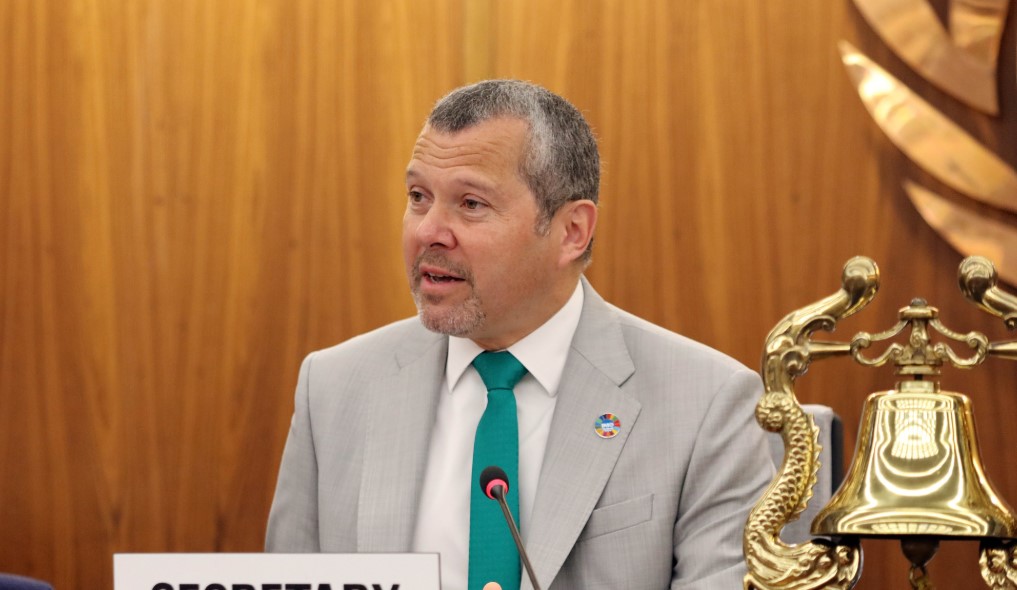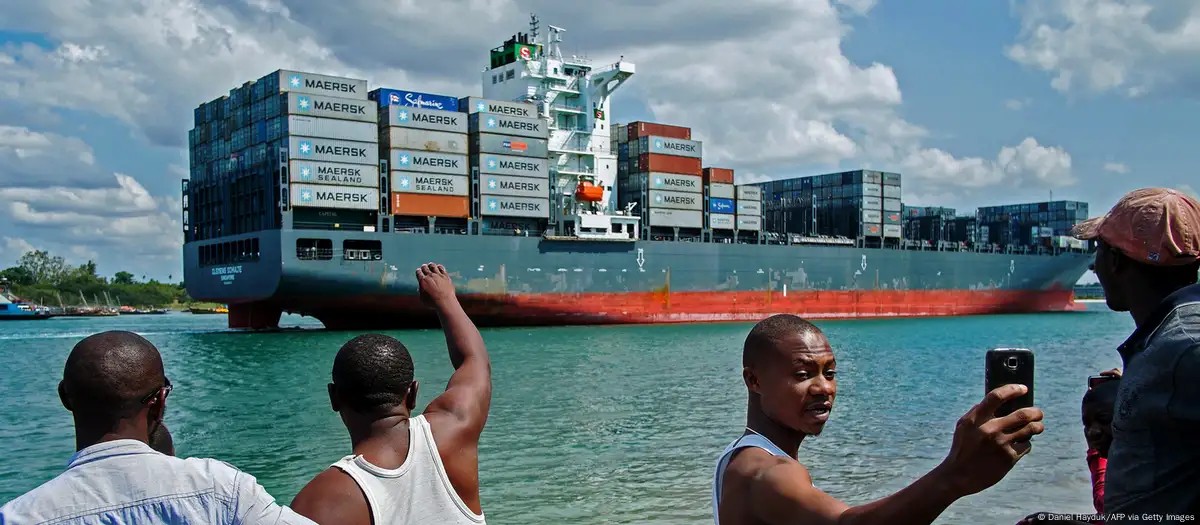Major breakthrough as UN adopts plan for net-zero shipping emissions by 2050

The IMO, which was established in 1948 and is based in London, has a history of creating global regulations to enhance safety and reduce pollution from ships.
A new international agreement to reduce greenhouse gas emissions from the global shipping industry has been reached, marking a major step in the fight against climate change.
The deal, reached at a United Nations meeting in London this week, outlines a path to cleaner maritime transport by the year 2050.
More To Read
- Kenya among nine nations leading regional push to strengthen health systems against climate change
- Hurricane Melissa is a warning – why violent storms are increasingly catching the world off guard
- Turning food waste into energy key to climate goals, says UN report
- UN warns global climate adaptation funds running dangerously low
- Why countries struggle to ditch fossil fuels despite rising costs, decades of climate deals
- Explore earth in 2100: New online game lets you imagine the future
The agreement was concluded during the Marine Protection Committee session of the International Maritime Organisation (IMO), the UN body tasked with regulating shipping.
It focuses on mandatory fuel standards and introduces a pricing system to reduce emissions from ocean-going ships.
IMO Secretary-General Arsenio Dominguez praised the outcome of the negotiations.
“This represents another significant step in our collective efforts to combat climate change and modernise shipping. It demonstrates that IMO delivers on its commitments,” he said.
The framework targets net-zero emissions from the shipping sector by 2050.
Formal adoption of the new measures is scheduled for October 2025, with implementation planned for 2027.
Alternative fuels
The agreement is designed to give the shipping industry enough time to prepare for the new requirements, including investing in alternative fuels and new technology.
The new rules will apply to vessels over 5,000 gross tonnage.
These ships account for 85 per cent of the carbon dioxide emissions from the marine shipping fleet.
The shipping industry is a major contributor to global emissions, currently responsible for around 2.8 per cent of greenhouse gases worldwide.
Shipping also plays a key role in the global economy, with more than 80 per cent of world trade by volume moved by sea.
However, experts believe the maritime sector holds great potential for cutting emissions due to its size and dependence on fossil fuels.
The IMO has adopted a dual strategy under the new deal.
One part focuses on a global fuel standard, which will steadily lower the greenhouse gas intensity of marine fuels each year.
This measure will encourage shipowners to adopt cleaner energy sources.
Carbon pricing mechanism
The second part is a carbon pricing mechanism. Ships that emit more greenhouse gases than allowed will be required to purchase remedial units to offset their excess emissions.
On the other hand, ships using low or zero-emission technologies will qualify for financial incentives.
Another important element is the creation of the IMO Net-Zero Fund. This fund will be supported by money collected through the carbon pricing system.
It will be used to support innovation and cleaner infrastructure in developing countries.
In addition, it will help address the economic impact of the new measures on vulnerable nations, especially small island developing states and least developed countries.
The IMO, which was established in 1948 and is based in London, has a history of creating global regulations to enhance safety and reduce pollution from ships.
It is the body behind major international conventions such as the Safety of Life at Sea (Solas) and the Prevention of Pollution from Ships (Marpol).
Greenhouse gas
The draft rules require ships to cut their greenhouse gas fuel intensity over time.
Fuel intensity is the amount of greenhouse gases emitted for each unit of energy used, measured using a well-to-wake approach.
Ships that exceed their allowed levels will need to purchase remedial units, while those that operate with cleaner technologies will be rewarded.
The framework gives the industry a timeline to transition to lower emissions without immediate disruption.
It also offers financial motivation for cleaner practices, helping to drive the global shipping sector toward greener alternatives.
The final decision on the regulations will be made in October 2025.
If approved, the rules will take effect in 2027, beginning a new chapter for global maritime transport as it moves toward a cleaner future.
Top Stories Today













































